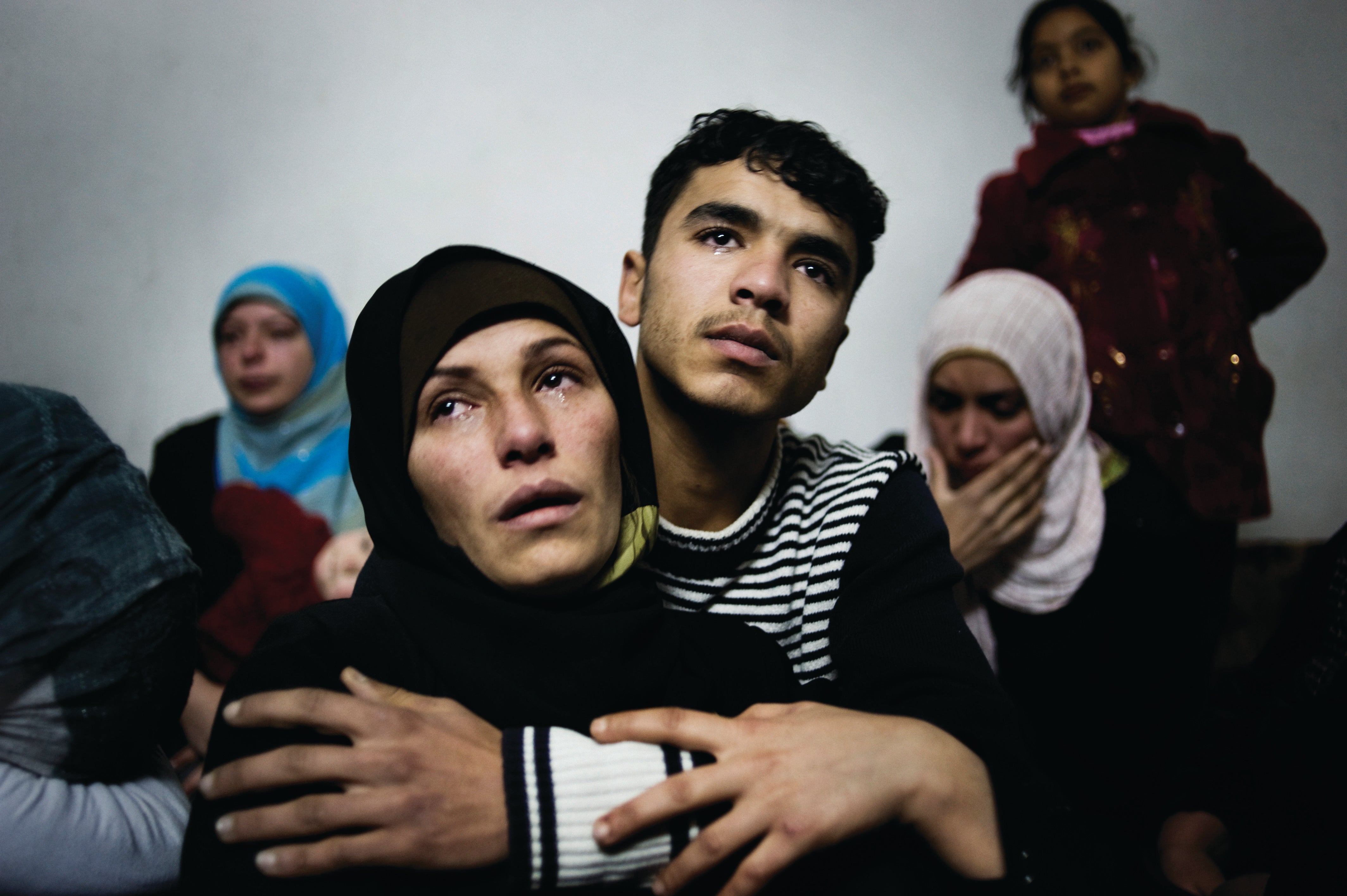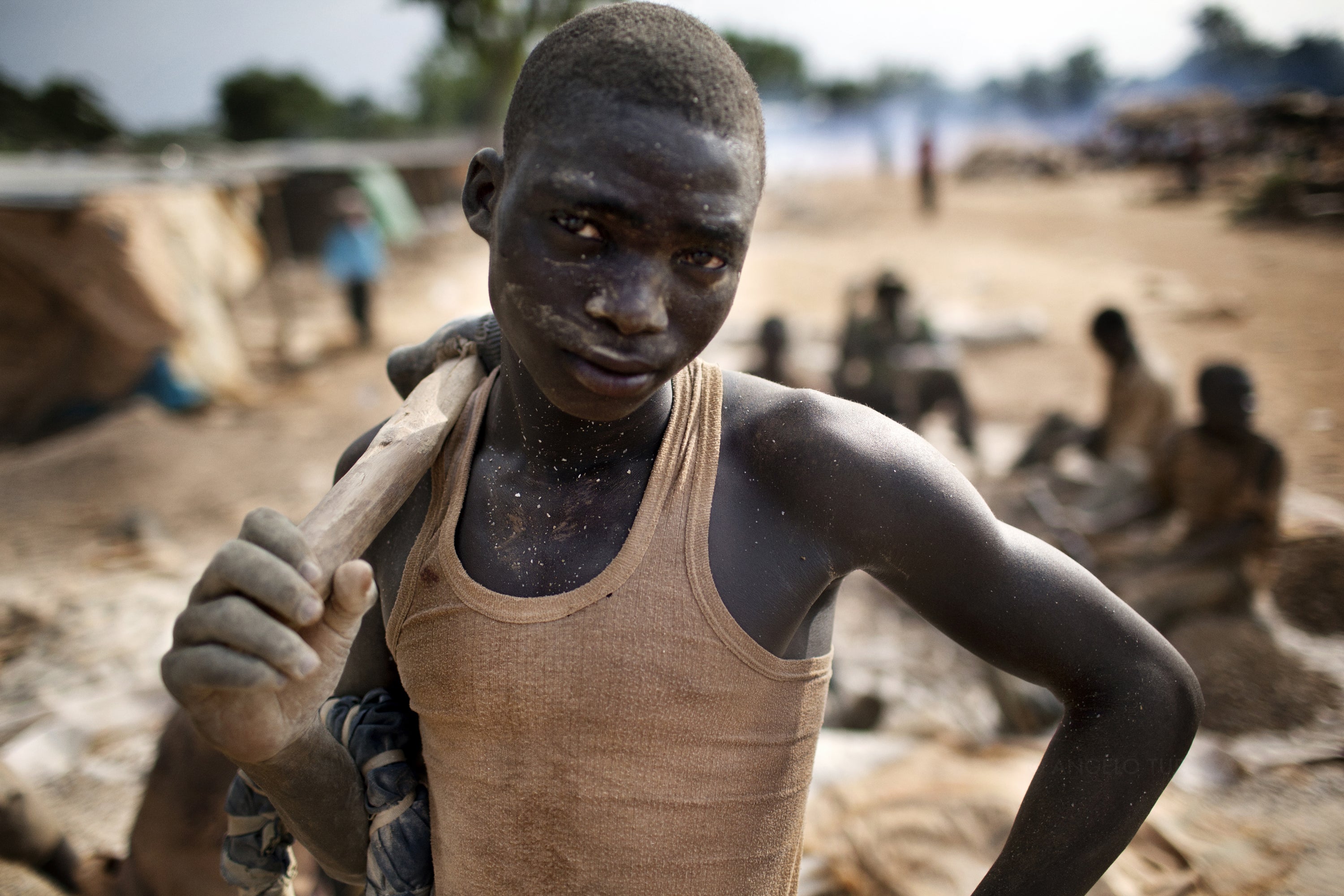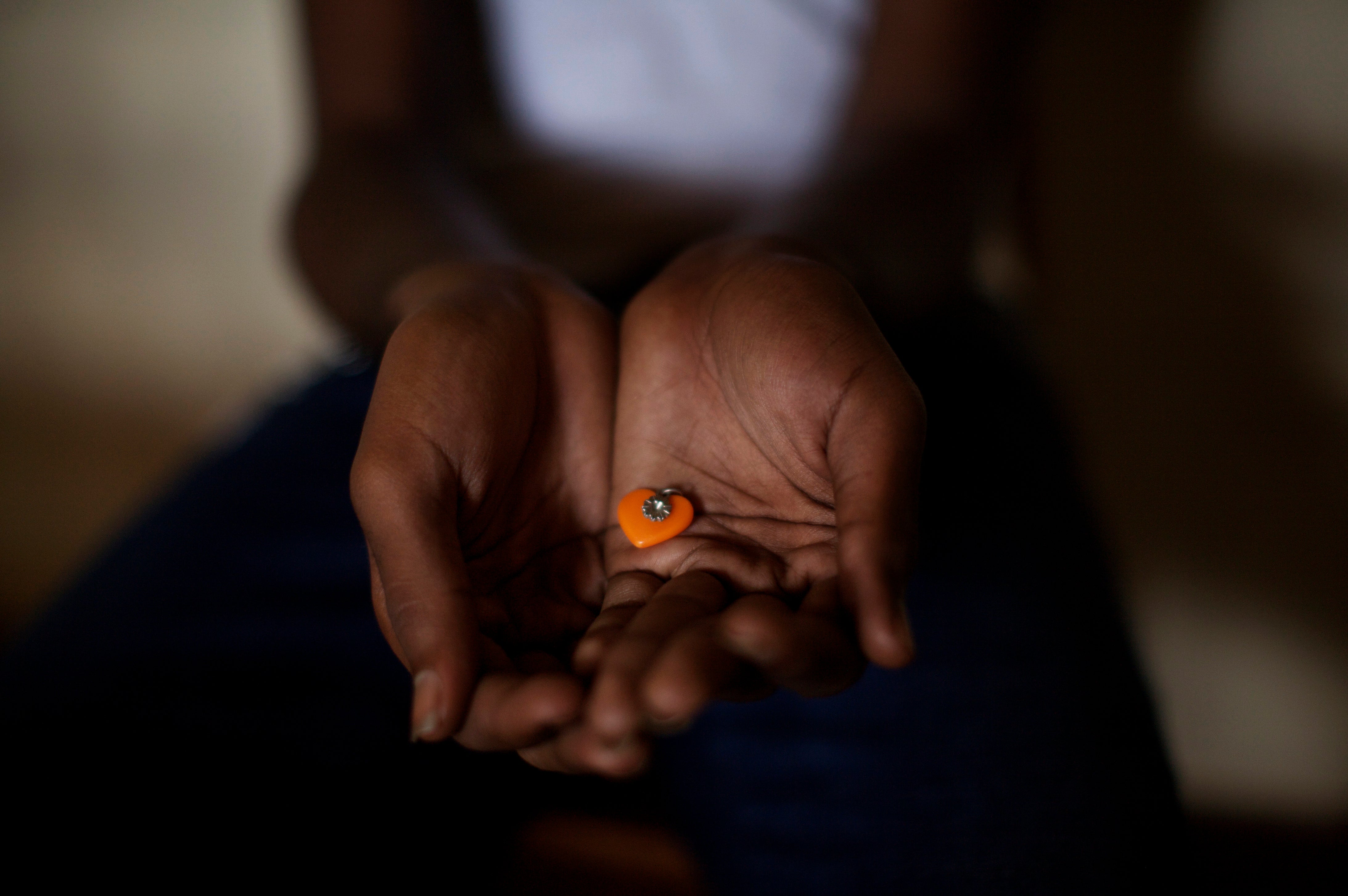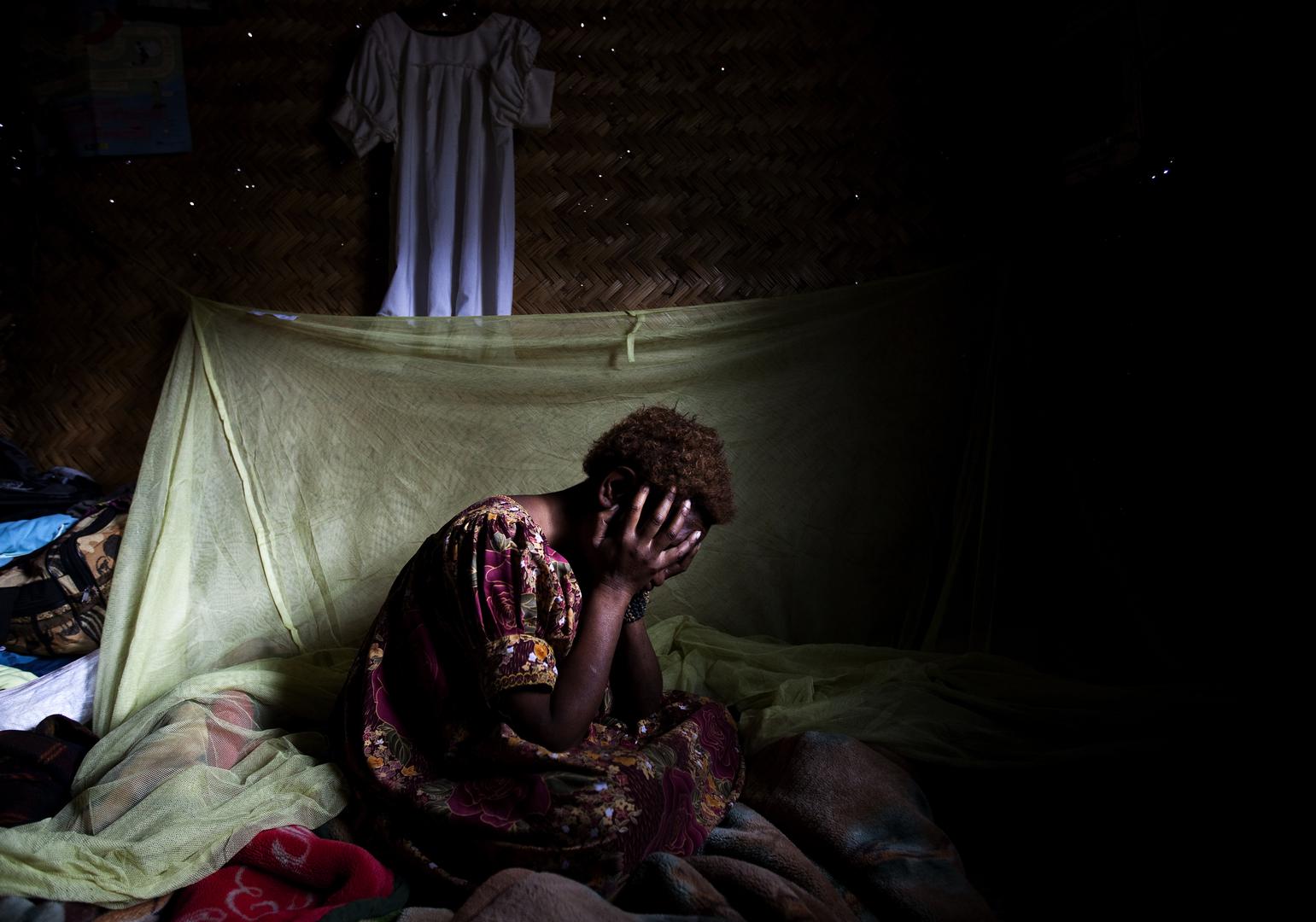The Sri Lankan government in 2012 continued its assault on democratic space and failed to take any meaningful steps towards providing accountability for war crimes committed by either side during the internal armed conflict that ended in 2009.
The government targeted civil society through threats, surveillance, and clampdowns on activities and free speech. Statements by government officials and government-controlled media named and threatened human rights defenders who called for accountability for wartime abuses or criticized other government policies. Local activists expressed deep concern about the security of their staff and the people they assist.
Overly broad detention powers remained in place under various laws and regulations. Several thousand people continued to be detained without charge or trial. State security forcescommitted arbitrary arrests and torture against ethnic minority Tamils, including repatriated Sri Lankan nationals allegedly linked to the defeated Liberation Tigers of Tamil Eelam (LTTE). The Tamil population in the north benefitted from humanitarian groups having greater access tothe area, but the government did not take adequate steps to normalize their living conditions.
President Mahinda Rajapaksa and his brothers continued to accumulate power at the expense of democratic institutions. Calls to restore the independence of the National Human Rights Commission (NHRC) and other government commissions that Rajapaksa marginalized via the Eighteenth Amendment to the constitution, which passed in 2010, went unheeded.
Accountability
Sri Lanka made no progress in 2012 toward ensuring justice for the victims of numerous violations of human rights and the laws of war committed by both sides during the 26-year-long conflict between the government and the LTTE. These violations include the government’s indiscriminate shelling of civilians and the LTTE’s use of civilians as “human shields” in the final months of the conflict, which ended in May 2009.
The government continued to ignore the 2011 report of the panel of experts appointed by United Nations Secretary-General Ban Ki-moon, which recommended establishing an independent international mechanism to monitor the government’s implementation of the panel recommendations, conduct an independent investigation, and collect and safeguard evidence.
In March 2012, the UN Human Rights Council (HRC) adopted a resolution finding that the government’s Lessons Learnt and Reconciliation Commission (LLRC) did not adequately address serious allegations of violations of international law, and called on Sri Lanka to take all necessary steps to ensure justice and accountability. It requested that the government expeditiously present a comprehensive plan detailing the steps it had taken to implement the LLRC’s recommendations and to address accountability.
The Sri Lankan government responded by publicly threatening human rights defenders who had advocated for the resolution. In July, the government announced that it had adopted an action plan to implement LLRC recommendations. The plan vaguely calls for the government to look into civilian deaths and prosecute any wrongdoers. It sets out a 12-month timeframe to conclude disciplinary inquiries and 24 months for prosecutions. But the government proposal merely leaves responsibility for investigations with the military and police, the entities responsible for the abuses, using processes lacking in transparency.
There has been no information regarding actions of the special army courts of inquiry, supposedly established in 2012 to look into allegations of war crimes. Despite strong evidence that government forces were involved in the execution-style slayings of 17 aid workers and 5 students in separate incidents in 2006, no one was arrested for the crimes. Other recommendations, such as the need to restore the independence of the police and remove them from the purview of the Ministry of Defence, were tasked to parliamentary select committees that had yet to be established at this writing.
During its Universal Periodic Review (UPR) before the HRC in November 2012, the Sri Lankan government rejected 100 recommendations from member states, including some that have a direct impact on accountability.
Arbitrary Detention, Torture, and Enforced Disappearances
The police and security forces continue to enjoy overly broad detention powers. The president issued monthly decrees granting the armed forces search and detention powers, effectively granting police powers to the army.
Despite the end of the formal state of emergency in 2011, the government continued to hold without trial several thousand people initially detained under the emergency regulations. In spite of public commitments, the government also failed to publish comprehensive lists of the names of the detained, as well as places of detentions.
The government released most of the more than 11,000 suspected LTTE members detained at the end of the war and announced plans to prosecute 180 of those still detained.
Local rights groups reported arbitrary arrests, new enforced disappearances, abductions, and killings in the north and the east in 2012. The government lifted its restrictions on travel to the north, although it maintained a high security presence. Tamils with alleged links to the LTTE were increasingly at risk of arbitrary arrests and torture. In April, nearly 220 Tamil men and women in the Trincomalee area were arrested and held for several days without charge in military detention camps.
Tamils who returned to Sri Lanka, including deported asylum seekers, reported being detained and accused of having links to the LTTE or taking part in anti-government activities abroad. A number reported being tortured by the Central Intelligence Department and other security forces. On the basis of these reports, courts in the United Kingdom granted injunctions to stop the deportation of more than 30 Tamil asylum seekers.
The Prevention of Terrorism Act remained in place, giving police broad powers over suspects in custody.
Attacks on Civil Society
Free expression remained under assault in 2012. Government officials and state-owned media publicly threatened civil society and human rights activists who spoke in favor of March’s HRC resolution. Their names and faces were publicized and they were branded as traitors. The government took no action against a cabinet minister, Mervyn de Silva, who threatened activists.
Media reported increased surveillance and clampdowns on free speech. In June 2012, the Criminal Investigation Department raided the offices of the Sri Lanka Mirror, a news website, and the Sri Lanka X News website of the opposition United National Party. The authorities confiscated computers and documents and arrested nine people on the grounds that the websites were "propagating false and unethical news on Sri Lanka." They were charged under article 120 of the penal code, which imposes up to two years in prison for those who “excite or attempt to excite feelings of disaffection to the president or to the government.” The nine were released on bail the day after their arrest.
The government shut down at least five news websites critical of the government in 2012 and put in place onerous registration requirements and fees for all web-based media services. Many news websites moved their host proxies abroad to avoid the censorship. Frederica Jansz, then-editor of the anti-government Sunday Leader newspaper, reported that Gotabhaya Rajapaksa threatened her in July, when she criticized his decision to reroute a government plane in order to pick up a puppy from Switzerland. The paper retracted the story in November. There were reports of other independent or outspoken members of the media being pushed out of their positions due to political pressure. Unknown assailants gunned down the previous Sunday Leader editor, Lasantha Wickrematunge, in broad daylight near a police station in 2009. No investigation has been conducted into his death.
There were no further developments in the case of Prageeth Ekneligoda, a contributor to Lanka E-news, who disappeared on January 24, 2010. Attorney General Mohan Peiris, summoned to testify in Colombo, retracted a previous statement where he had claimed that Ekneligoda had not disappeared but had willingly moved abroad.
In September, elections for local provincial councils in the east were marred by allegations of violence and vote-rigging.
Internally Displaced Persons and Militarization
The last of the nearly 300,000 civilians illegally confined in military-controlled detention centers after the war—including Menik Farm near Vavuniya, which was closed in September 2012—moved back into communities, although not necessarily to their home areas. Tens of thousands of persons still live with host families or in temporary accommodation, and several thousand are not able to return home because their home areas have not been de-mined.
Although the government claimed to have considerably decreased its military presence in the north and east, credible accounts indicate that military personnel still frequently intervene in civilian life. A Defence Ministry video on the north and east showed the military involved in numerous civilian activities, including organizing school cricket competitions and celebrations in temples. Soldiers commit abuses against civilians with impunity. Fishermen and farmers complained about the armed forces continuing to encroach into their coastal areas and onto their land, impacting their livelihoods.
Key International Actors
Sri Lanka’s government faced mounting pressure from key international actors after it failed to take meaningful action on accountability issues. At the March HRC session, the government tried to block the council from adopting a resolution focusing on accountability. The resolution, which passed with 24 votes in favor, 15 against, and 8 abstentions, effectively overturned a May 2009 council resolution that ignored serious human rights concerns during the Sri Lankan war. Member countries voting for the resolution included Nigeria, Uruguay, and India, which faces pressure from Tamil Nadu state and civil society activists demanding accountability. The resolution calls on the UN Office of the High Commissioner for Human Rights (OHCHR) to report back in March 2013.
India continued to press the Sri Lankan government to address allegations of human rights violations, implement the LLRC recommendations, and initiate a reconciliation process with the Tamil minority.
China has emerged in recent years as an important ally of Sri Lanka’s government. In addition to investing heavily in developing Sri Lankan infrastructure, China had several high-level diplomatic and military missions to the country during the year and vocally opposed the HRC resolution on Sri Lanka.




